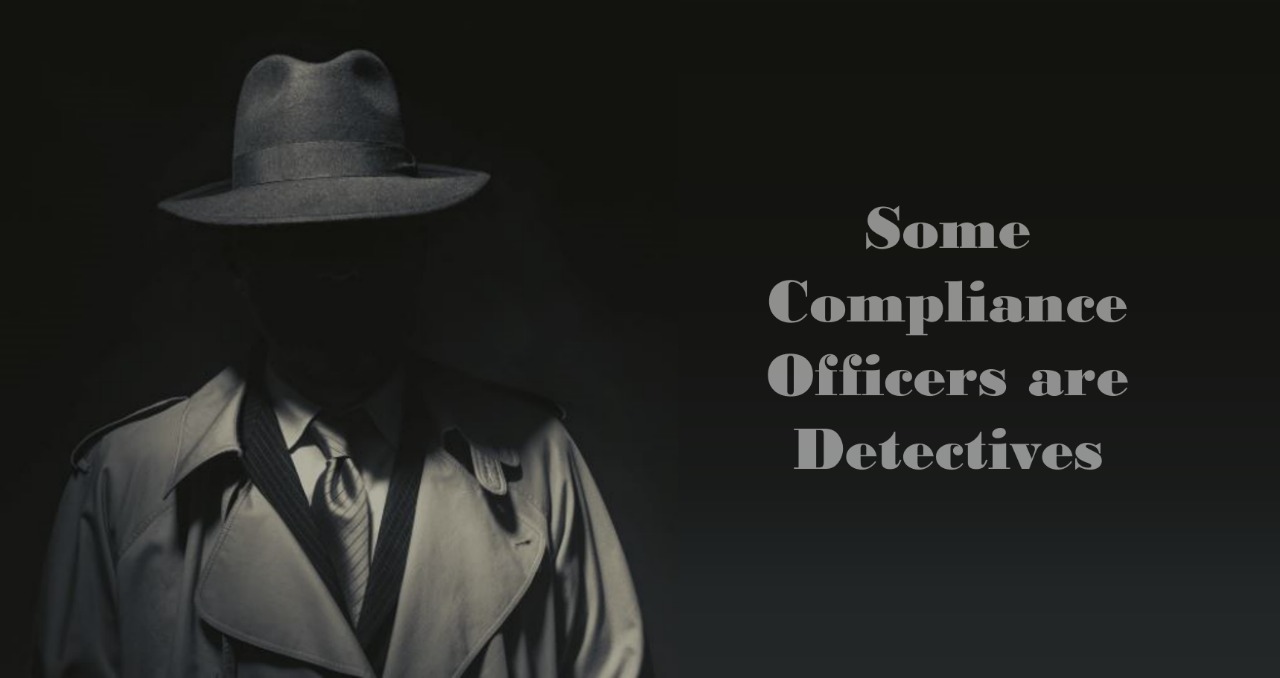Some compliance officers are detectives
There are some instances when modern-day compliance professionals are asked to undertake investigations, conduct due diligence, assess risks, confront challenging people, identify suspicion and make difficult decisions. Whilst the question is not always, “Who did it?”, it will often be, “What is taking place, why, where, how, when?” and ultimately, “Is it suspicious?”
When confronted with an internal suspicious activity report (SAR), financial crime compliance professionals are effectively being asked to investigate an allegation of crime. How many of us signed up for this, and who has been trained to perform the role of a detective? The Global Compliance Institute can help to equip you to become a 21st-century anti-money laundering, counter-terrorist finance detective.
Detectives not only know the law; they also know how to gather evidence, where to look for it, who to ask for it and how to store it. Properly trained financial crime detectives can expediently differentiate between a legitimate transaction/customer and a potential crime. They understand the threats posed and can scale an investigation to identify the extent of the threats posed by the potential contamination of money laundering.
21st Century Compliance Challenges
The role of the financial crime compliance officer is becoming increasingly demanding. There is an expectation of omni-competence, incorporating abilities to communicate at all levels and with all stakeholders. It is necessary to understand how a business operates, the products/services offered alongside the controls which seek to ensure compliance. There is a lot of responsibility and increasing accountability.
Some people assert the head of anti-money laundering (the Money Laundering Reporting Officer) presents the greatest level of personal risk within a regulated financial services business. This brings additional levels of stress. It is one of a small number of roles that can result in a criminal conviction for those who fail to perform properly. There are tensions between the pressures from business colleagues seeking to make money and compliance with laws, which will inevitably prevent some business.
Moreover, whilst profits can be measured and rewarded, losses that are avoided never materialize, and therefore, those who prevent them are seldom rewarded.
There is now increased pressure from frustrated shareholders who resent losses incurred from penalties paid for anti-money laundering failures. Class action lawsuits are on the rise, penalties are not reducing, and as economies suffer in the grip of a pandemic, there is increased vulnerability to bad business deals and money laundering.
It is the role of the financial crime compliance officer to protect the shareholders, avoid the penalties and reject bad business. It is the provision of training which enables compliance managers to ensure colleagues across the business, in all countries, at all times, act as deputies, apply knowledge, replicate thinking and confront challenges
The power of training
Here at the Global Compliance Institute, we draw upon decades of experience; tactical, from the front line and strategic from the management as well as the design of anti-financial controls. We are innovative, we look for problems and then fix them with training. We have met with the money launderers, the fraudsters, the frustrated manager, the irate colleague and demanding law enforcement officer. We have been summoned to the court to explain our actions and subsequently, we have been engaged by the courts as experts.
We simultaneously think like money launderers and frontline financial crime officers, who are under pressure and challenged to ensure legitimate customers can access services, accounts or products. All the while, deterring, detecting and reporting upon financial criminals, including launderers and terrorist financiers. There is no magic here, but training helps to ensure the right decisions are made and the desired outcomes are achieved.
Staff at the Global Compliance Institute have gone beyond analytics and interpretation of applicable laws or regulations, directly to the scenarios which arise within your business. Our training can safe- guard you and your staff against deceptive criminals who seek to compromise them. The training joins the dots between the crimes, the money, the actions of compliance professionals and the positive impacts which can be accomplished when financial crime risks are identified, managed, mitigated or rejected.
We are looking forward to working with you, your colleagues, your directors, suppliers and even customers to create and maintain hostile environments for financial criminals, including those who seek to finance terrorists.
What we collectively do Makes A Difference. There is considerable satisfaction to be derived from the knowledge that by stopping money laundering or terrorist financing, we are protecting people, potentially saving lives, improving lives and giving young people a better chance in life.
